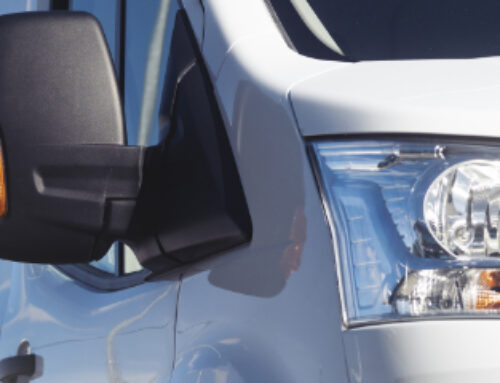[fusion_builder_container hundred_percent=”no” equal_height_columns=”no” menu_anchor=”” hide_on_mobile=”small-visibility,medium-visibility,large-visibility” class=”” id=”” background_color=”” background_image=”” background_position=”center center” background_repeat=”no-repeat” fade=”no” background_parallax=”none” parallax_speed=”0.3″ video_mp4=”” video_webm=”” video_ogv=”” video_url=”” video_aspect_ratio=”16:9″ video_loop=”yes” video_mute=”yes” overlay_color=”” video_preview_image=”” border_size=”” border_color=”” border_style=”solid” padding_top=”” padding_bottom=”” padding_left=”” padding_right=””][fusion_builder_row][fusion_builder_column type=”1_1″ layout=”1_1″ background_position=”left top” background_color=”” border_size=”” border_color=”” border_style=”solid” border_position=”all” spacing=”yes” background_image=”” background_repeat=”no-repeat” padding_top=”” padding_right=”” padding_bottom=”” padding_left=”” margin_top=”0px” margin_bottom=”0px” class=”” id=”” animation_type=”” animation_speed=”0.3″ animation_direction=”left” hide_on_mobile=”small-visibility,medium-visibility,large-visibility” center_content=”no” last=”no” min_height=”” hover_type=”none” link=””][fusion_text columns=”” column_min_width=”” column_spacing=”” rule_style=”default” rule_size=”” rule_color=”” hide_on_mobile=”small-visibility,medium-visibility,large-visibility” class=”” id=”” animation_type=”” animation_direction=”left” animation_speed=”0.3″ animation_offset=””]
Company cars can be expensive to operate and, for many organisations, can be one of the largest overhead costs. Selecting the most appropriate business car finance method for the company fleet is therefore of paramount importance. The most popular method of financing company cars is business car leasing.
It is attractive to companies both large and small, as it allows them to finance their vehicles with a minimum down payment and an agreed mileage and period for the contract.
What is business car leasing exactly?
A business car lease allows an organisation the use of a vehicle for business purposes in exchange for a pre-agreed cost per month. This is a common way for businesses to obtain new vehicles. It avoids having to fully invest in owning the vehicle outright and seeing its value depreciate dramatically in a short period of time.
With a large number of business vehicle lease agreements, you will need to put down an initial deposit to secure the agreement. This usually amounts to a total of three monthly payments, but can vary depending on the terms of your agreement.
What are the benefits of business car leasing?
Business car leasing has grown in popularity in the UK because it removes most of the risk of operating company cars for businesses.
For example, there is no risk to the company (the lessee) on the disposal of the vehicles as this is borne by the leasing company (the lessor).
One of the main benefits of leasing a car through a business is known financial outgoings. There is a fixed monthly cost which makes budgeting straightforward and does not risk a huge drain on cash flow which can be invested elsewhere in the business.
With business car finance, there is usually no option for the lessee to purchase the vehicle and, at the end of the contract, it is returned to the leasing company – although in certain cases, the driver may have the option to acquire the vehicle at market value.
The monthly business car rental usually takes into account the cost of the car including vehicle registration fees, road tax, its period of use and agreed mileage, funding costs, and forecast residual value (the car’s estimated value at the end of the contract). This part of the monthly charge is often referred to as the ‘finance’ element of the rental.
What affects the vehicle leasing rate?
Vehicle mileage has the biggest impact on the business car lease rate because the number of miles has major implications for both service requirements and resale value.
Typical contract mileages may be anything from 10,000-40,000 miles per annum, depending on usage and the company’s requirements.
But, while underestimating mileage can reduce the monthly business car rental rate for the lessee, it can also result in excess charges at the end of the contract if the contracted mileage is exceeded.
The choice of vehicle model can also be a major factor. Two cars may have an almost identical list price, but if one has a much higher forecast residual value, this will be reflected in a lower monthly rental rate.
The monthly rate for most business car lease agreements will also include a ‘service’ element of the rental, which can cover a range of additional services.
Examples of such services include maintenance, replacement vehicles, roadside assistance, accident management and fuel cards.
Lessees are typically able to choose from a menu of options to meet their individual needs and the level of professional fleet support resources they require.
Business car leasing explained: What does a deal look like?
The minimum payment on a business car lease deal is normally three payments in advance. However, this can be as high as nine payments upfront depending on the deal taken.
Vehicle leasing deals are normally calculated over two, three, four or even five year periods. These are often advertised as 3+23, 3+35, 3+47 or 3+59 contracts, with three payments in advance then the remainder over the rest of the term. Business car leasing rentals are subject to VAT at the normal rate. If there is no private use of the vehicle (unlikely) then 100% of the VAT can be reclaimed.
If there is private use (most likely), then 50% of the VAT on the finance element can be reclaimed. If there is service and maintenance involved in the agreement, then 100% of the VAT on the service element may be reclaimed, provided these are separately identified and supplied.
What happens at the end of the business car lease contract?
At the end of the agreed lease period, the car is returned to the finance company, which will charge for any excess mileage over and above the total contracted mileage and any damage or unfair wear and tear on the vehicle.
Why choose business car leasing?
Benefits of business car leasing include:
[/fusion_text][/fusion_builder_column][/fusion_builder_row][/fusion_builder_container][fusion_builder_container hundred_percent=”yes” overflow=”visible”][fusion_builder_row][fusion_builder_column type=”1_1″ layout=”1_1″ background_position=”left top” background_color=”” border_size=”” border_color=”” border_style=”solid” spacing=”yes” background_image=”” background_repeat=”no-repeat” padding_top=”” padding_right=”” padding_bottom=”” padding_left=”” margin_top=”0px” margin_bottom=”0px” class=”” id=”” animation_type=”” animation_speed=”0.3″ animation_direction=”left” hide_on_mobile=”no” center_content=”no” min_height=”none” last=”no” hover_type=”none” link=”” border_position=”all”][fusion_checklist]
- A cash-flow friendly form of funding
- It is a VAT efficient way of operating a company car
- It provides fixed motoring costs for the contract period
- It removes the uncertainty surrounding future, ever fluctuating residual values
- It frees up staff time by reducing in-house administration
- It can offer detailed reporting as required
- It is available with an optional monthly maintenance charge (which covers routine maintenance and servicing costs).
[/fusion_checklist][fusion_text]
Need further information on what business car leasing is and how it could work for your business? Get in touch with Maxxia – our team of experts can help you identify the best car leasing deals for your business.[/fusion_text][/fusion_builder_column][/fusion_builder_row][/fusion_builder_container]









Perfectly said that vehicle mileage directly linked with business car lease rate because the number of miles has major implications for both service requirements and resale value.